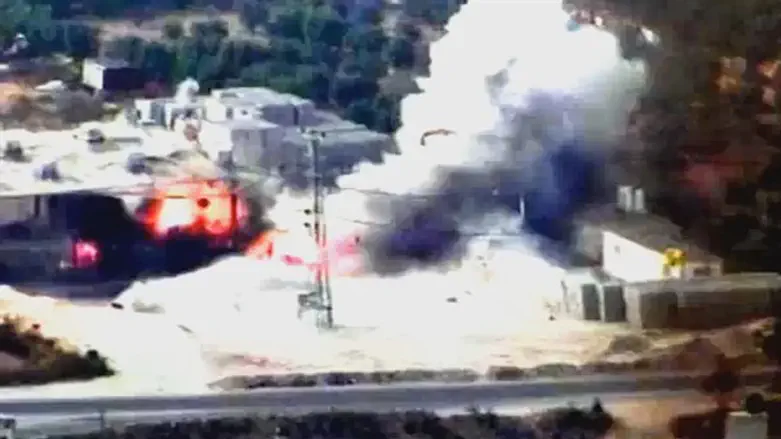
Recent events in Southern Israel have reinforced the notion that the Israeli government has been, for some time, putting a policy of retaliation into practice. Retaliation is an emotionally satisfying act that under nearly all circumstances serves as grounds for a counter act that fuels a vicious revenge cycle. It is analogous to inflicting a minor injury, a superficial gash, on an adversary, without causing a permanent disabling devastation that would put the bad guys out of business for good. As long as the enemy is able to stand up back on their feet and rebound, retaliation only fires up their emotions, energizes them, enhances their popularity among their peers, and transforms their criminal acts to heroic martyrdom. History has shown that a lasting peace following a bitter war has a better chance of success when the enemy is forced into an unconditional surrender.
History has shown that a lasting peace following a bitter war has a better chance of success when the enemy is forced into an unconditional surrender. The recent escalation of rocket launchings from Hamastan and the Israeli response has not eliminated Hamas’s and their partners’ ability to rebuild and repeat their acts of violence. Palestinian terrorist organizations continue to launch rockets and the Israeli government continues to retaliate. It is evident that Hamas’s rocket technology has improved greatly, as they are able to hit farther and more accurately. Four people were killed and tens wounded. Is Israel going to wait for a terrorist big bang before eradicating this cancer, or treat it with aspirin to make the temporary pain go away?
The recent escalation of rocket launchings from Hamastan and the Israeli response has not eliminated Hamas’s and their partners’ ability to rebuild and repeat their acts of violence. Palestinian terrorist organizations continue to launch rockets and the Israeli government continues to retaliate. It is evident that Hamas’s rocket technology has improved greatly, as they are able to hit farther and more accurately. Four people were killed and tens wounded. Is Israel going to wait for a terrorist big bang before eradicating this cancer, or treat it with aspirin to make the temporary pain go away?
There is no question. Iron Dome can not stop 100% of incoming rockets although it gets most of them. A war of attrition is advantageous to the enemy since the cost of a single Katyusha or Qassam rocket is miniscule in comparison to a single Iron Dome smart missile. And one day, one of those rockets might hit a sensitive non-human target. This is only a matter of chance, and the odds against such an event are getting thinner. Time has come for abolishing Retaliation and trading it for Eradication. Israel must put a stop, once and for all, to the constant challenge that the various Palestinian terror organizations present.
Settling on Eradication may yield a transitory resentment by those around the world who label themselves as ‘civilized’. They may complain that such actions are too harsh, that innocent lives get caught in the cross-fire, and that this is not a measured response. But the outcome and its associated benefits would be more permanent, and would last long after the memory of the global fury has faded away.
History has shown that a lasting peace following a bitter war has a better chance of success when the enemy is forced into an unconditional surrender. World War II, is the most recent example of this point. When wars do not end with the absolute defeat and surrender of the enemy, the peace, or the cease-fire that follows is unstable at best. The Arab Israeli wars are the best example of that point.
I do hope that the Israeli government does not wait for a greater disaster before ceasing the Retaliation policy and substituting it for a policy that affects Eradication. It must be a difficult decision for those who believe in measured responses. But if the safety and security of Israeli citizens precedes the safety and security of its enemies, then the way for taking the vicious revenge cycle to an end is by opting for a policy that would make it happen.